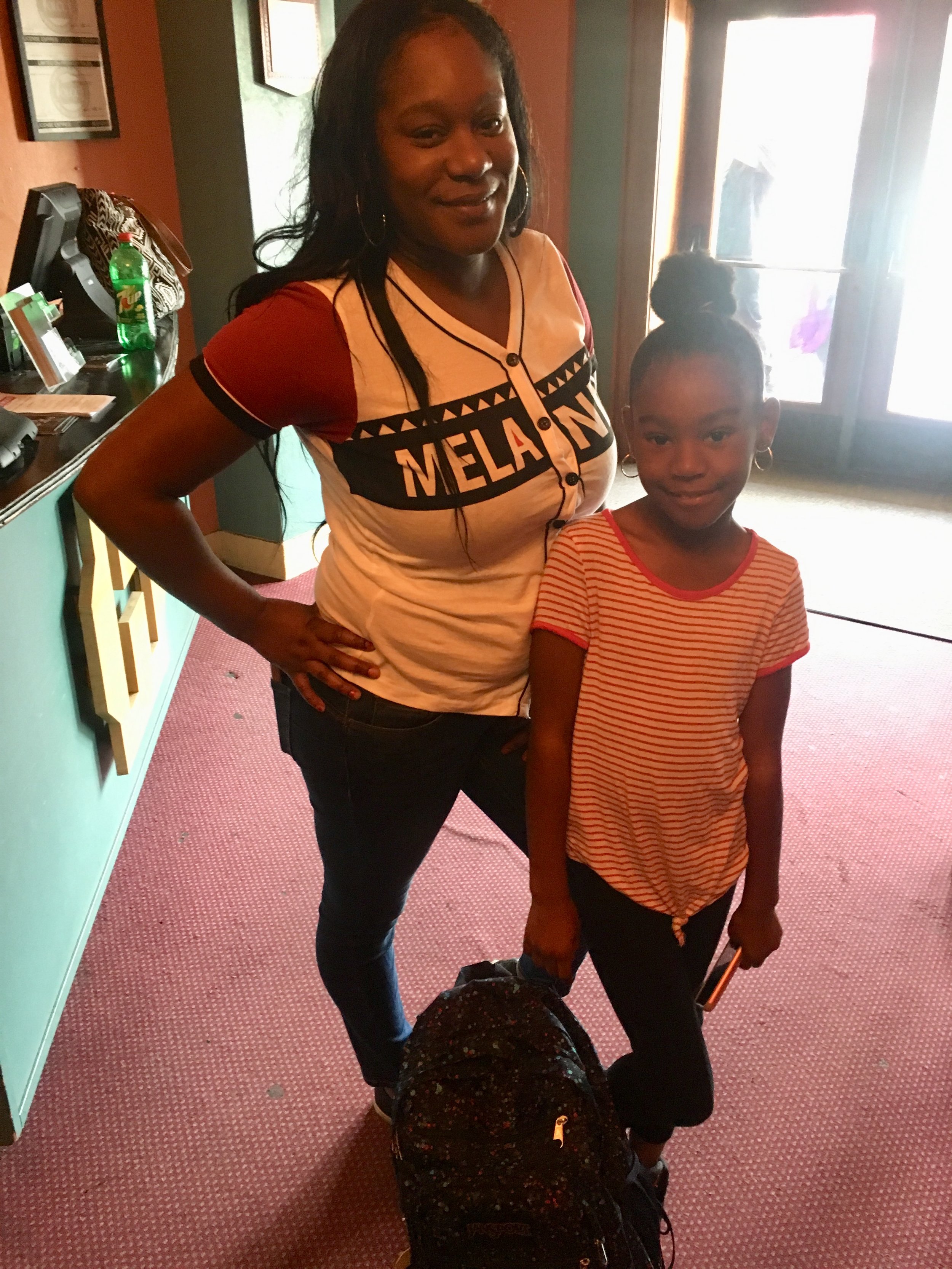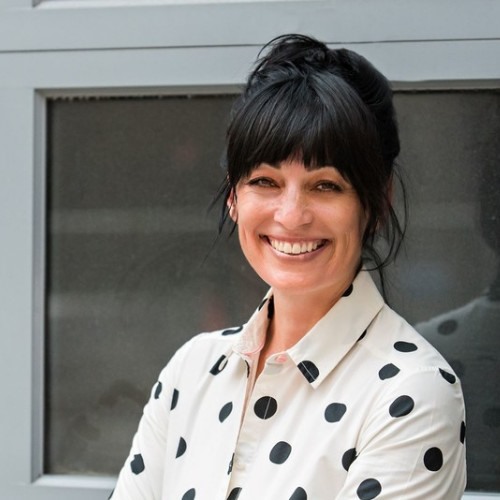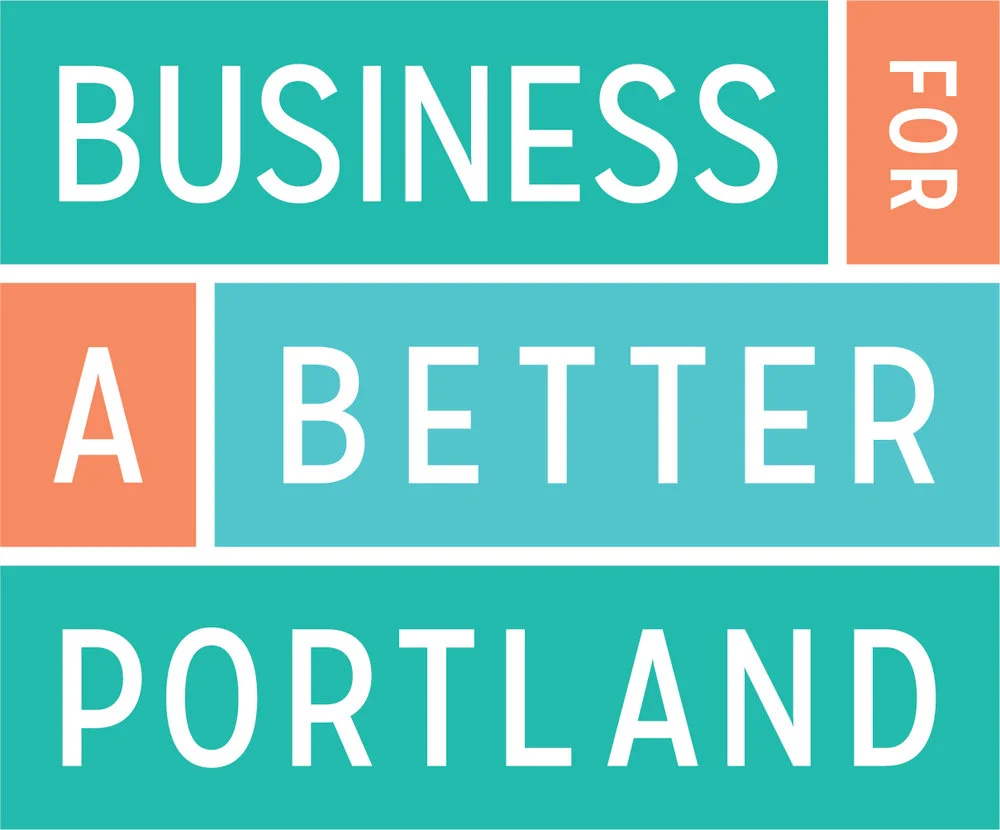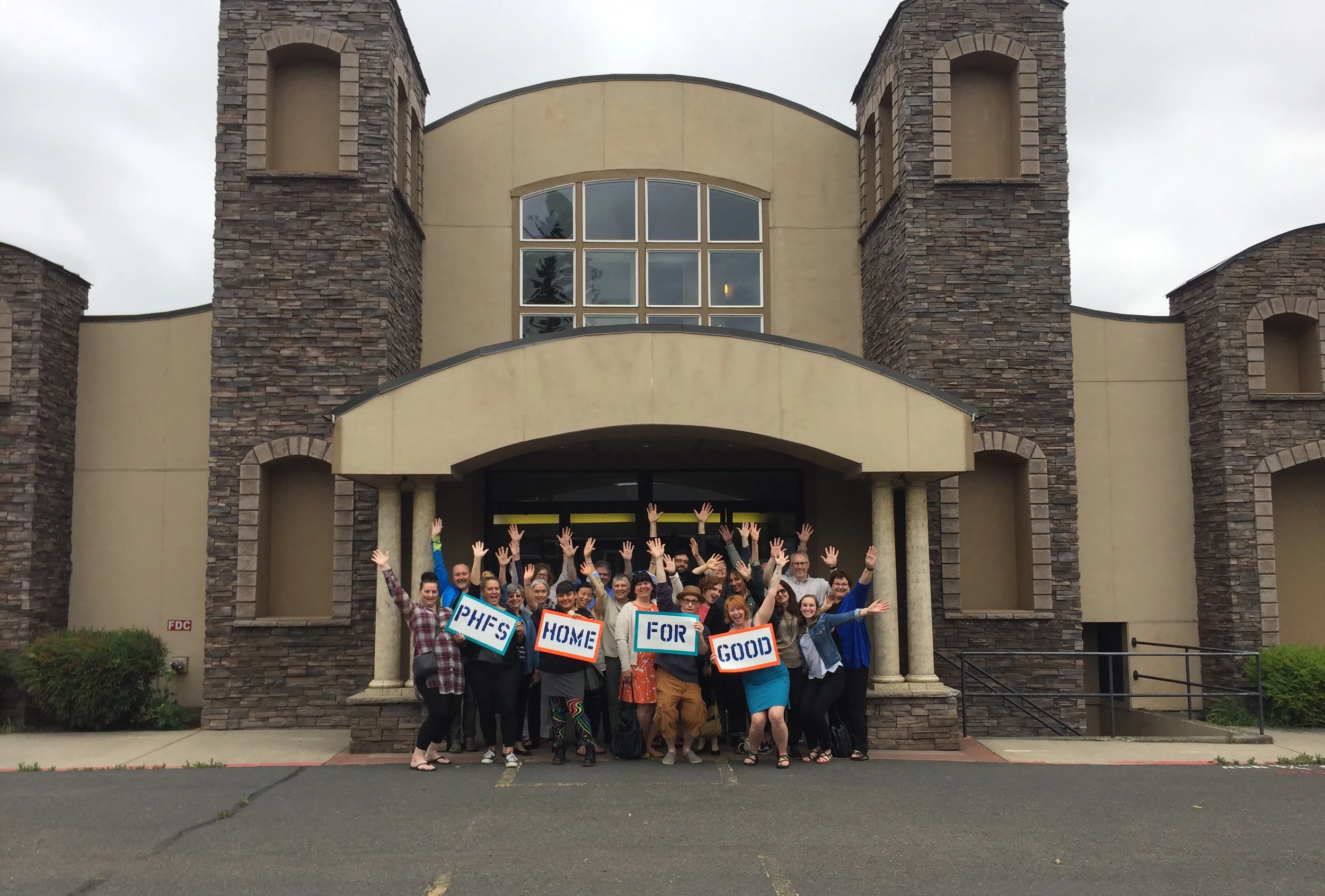We're Expanding Every Program!
It’s finally here – PHFS is ready to open our Family Village campus to drastically expand our services to families experiencing homelessness. Family Village is so much more than shelter. It’s the home to all of PHFS’ services and programs, and we’re expanding every single service we offer.
This is a critical time for PHFS as we scale up to help three times as many families. Please consider an investment to help PHFS expand our services.
Back-to-School: Movie & Backpack Pick up!
For children experiencing homelessness, going back to school from summer break can be really stressful. It can be hard to concentrate, get your homework done, and make friends when you are not sleeping in your own bed.
For the last four years, PHFS volunteers John and Rachel Devlin have organized a donation drive to provide these kids with everything they need to go back to school. This year, 56 donors came together to get backpacks and age-appropriate school supplies for all 100 kids in PHFS’ programs.
These children will begin their school year with everything they need, including Jansport backpacks, gift cards for back to school clothes, and tons of folders, pencils, crayons, binders, and more. Being prepared on the first day of school with the supplies they need made these kids feel so much more prepared and confident.
Families received these backpacks after watching a family-friendly film movie screening and enjoying popcorn at Hollywood Theatre. Hollywood Theatre generously hosted the movie screening and popcorn free of charge for Portland Homeless Family Solutions clients, staff, and volunteers.
Sponsored by Hollywood Theatre and John and Rachel Devlin.
Reflecting on a Night of Service at PHFS
In February, Business for a Better Portland put out a call to action for members to volunteer at PHFS’ Family Winter Shelter. The response was immediate and significant – filling one-seventh of all the shifts for the entire winter shelter season. Kristen Cooper of Blackbird Benefits was one of those individuals who answered the call to action. Here are her reflections about the experience.
This was originally posted on Business for a Better Portland’s blog on April 25, 2019.
Cooking is my love language. I know it’s a silly reference – but it’s just so accurate! Since I was as young as I can remember, my greatest joy has been cooking and sharing food with others, so when BBPDX put out the call to action supporting Portland Homeless Family Solutions by providing dinner to the residents of the winter shelter, it felt like a special opportunity to do just that.
Blackbird is a small agency, so we reached out to our community of friends and fellow business owners, and quickly gathered a team of 12, many of whom didn’t know about PHFS, or the winter shelter that was blocks from where they worked.
We knew we were preparing and serving dinner for about 60 people – half of them children age 5 or under – and being the robo-host (trademark pending) that I am, I fretted a bit about what to cook. In past experiences, I’ve cooked for people living on the street with very specific dietary needs and we had to keep things very simple.
We weren’t sure what dietary issues might factor into this situation, and wanted to make something that both parents and kids would enjoy. So, we settled on a cozy chicken stew and got busy in my kitchen. (In hindsight, it would have been great to have considered the logistics of transporting six huge, boiling hot pots of soup in the back of my vehicle, but hey, ya live and ya learn!)
We got to the shelter to set up dinner before the families returned from the day, then spent some time with Brandi learning more about the work of PFHS. Hearing the stats on the number of homeless children in PDX, over 4,000! was staggering. We followed that with a brief tour and entered the space where 22 families are sharing very close quarters – cots just two feet apart (many with stuffed animals) – without any personal privacy.
That hit me hard and I was instantly choking back tears.
I thought about how I feel after a crazy challenging day. How I look forward to being in my space to decompress. Can you imagine not having that? Can you imagine sleeping peacefully two feet from a complete stranger? With your children doing the same…
I think about that part a lot. What it must be like for the parents here, putting their children to bed, comforting them, and trying to convince them that everything will be ok. Then trying to do the same thing for themselves.
We moved through dinner service, smiling our friendly smiles, and hoping to maybe slightly brighten someone’s day. But it was impossible not to be so keenly aware of our privilege in the moment – being in the position to volunteer vs. being on the receiving end. We were keenly aware of our intrusion (even if benevolent) – of being smack in the middle of someone’s life when they are in such a vulnerable place.
We also recognized our time there was fleeting – we were there for a night, doing our good deed with all our good intentions, but we’d be back to our lives in a matter of hours – and we knew they knew it.
It was humbling.
Throughout the evening, some people engaged in friendly conversation with us, while others kept to themselves – and there were a few that needed to eschew the offering entirely, which I intuited as perhaps a way to maintain a sense of self in the face of peers – completely understandable. I honestly don’t know how I would handle being in that situation. Some families had dinner and went back out and sat in their car, just to have some private space together before coming back in for bedtime.
There are faces from that evening I will never forget. Mothers and fathers who smiled tired smiles. Others that were just plain tired. Little kids that were so resilient… A very kind father with his sweet daughter especially left a mark, and I think of them often.
We all left that evening with an intense level of gratitude, and some heavy hearts. Our little volunteer group spent the next few hours conversing about the dynamics of that human interaction: about socioeconomics, housing, gentrification, cycles of poverty, social justice/injustice, humanity, dignity and empathy.
At the end of it all, it was a beautiful and powerful experience to be a part of, and our goal is for Blackbird to develop ongoing volunteer opportunities at the PHFS day centers – so that we are not a fleeting presence for just one night.
With gratitude,
Kristen Cooper, Blackbird Benefits Collective
We are so close to opening the “Moon Shot” - eight years ahead of schedule.
We put in an offer of $3.3 million in December 2017.
Brandi signs the paperwork to buy the property on May 23rd!
Our PHFS Village celebrates the morning after we take ownership.
143 volunteers gave 690 hours to help us remodel.
So far, we’ve received over $200,000 of in-kind building material donations.
Our new campus will serve 26 families at a time in private bedrooms.
The last two years have been transformational for PHFS.
In response to the overwhelming community need to expand and serve more families, PHFS formulated a 10-year vision during a strategic planning retreat in April 2017.
We envisioned owning and operating a program where families experiencing homelessness could come anytime, 24-hours a day, to access a variety of services – shelter, rapid re-housing, homeless prevention, life skills classes, mental health care, a hot meal, or a pack of diapers. This dream seemed so distant and audacious that we called it “The Moon Shot.”
But by December 2017, we had found a building in the SE Lents neighborhood that felt like it was made for our Moon Shot vision. So we put in an offer to buy the building. We thought it would take us ten years to achieve our Moon Shot goal, but opportunity struck and we found ourselves with five months to raise $3.3 million.
So many of you contributed to help us buy our building, and by the end of May 2018 we signed the paperwork, becoming owners of the one-acre property that will triple our capacity from 8 to 26 families a night, and allow us to expand all of our services.
Over the summer, we were introduced to a professional design team who spent months designing our new shelter using trauma-informed design and architecture, which is proven to help families get out of shelter faster and have more success getting into housing. When we first purchased the building, we had no idea that we would be creating the first family shelter of its kind in Oregon: a shelter that will help families heal through the trauma and crisis of homelessness by using the evidence-based model of trauma-informed design and architecture.
And now here we are, just months from opening our “Moon Shot”program – eight years ahead of schedule. We are so close, but still need your help to close the gap so we can welcome families this summer. Please consider a gift to PHFS so we can finish the remodel and fully implement our trauma-informed shelter that will build dignity, restore power, and promote autonomy for the families that live there.
Thank you for being on this journey with us.
With Gratitude,
Brandi Tuck,
PHFS Executive Director
Jump for Joy!
A valentine’s campaign to bring joy, play, and connection to outdoor activity for homeless families with children.
A Shelter with Heart
PHFS is thrilled to be on the forefront of family shelter models that use trauma-informed design and architecture to create places that support emotional health. In addition to remodeling the interior of the building, in partnership with Jessica Helgerson Interior Design, we are designing the exterior using these concepts as well. PHFS is so excited to be working with Corlett Landscape Architecture, Maul Foster Environmental Engineering, and Naomi Miller, lighting designer, to help us realize these dreams.
Landscape Architect Cathy Corlett has designed a beautiful sanctuary that will help parents and kids feel calm, connected, and safe while they are guests at our shelter. It includes a playground, community food garden, basketball court, covered picnic area, dog walk area, and multiple types of gardens.
Before and After
The Lents campus includes a former church and apartments, surrounded almost completely by asphalt. The design team worked together to identify opportunities to extend the function of the buildings into the outdoor spaces, ways to address constraints such as storm-water drainage and safety, and strategies to unify these spaces as a campus.
Landscape design by Corlett Landscape Architecture
Applying the Aesthetics of Joy
With the recognition that an important part of trauma recovery is regaining a sense of optimism, the aesthetics of the outdoor spaces emphasize joy through curvilinear spaces, spherical and rounded forms, and materials and spaces which create a sense of abundance, lightness, and clarity. Kids and families growing their own food encourages a positive self-image, a sense of resourcefulness, supported by connection with the bounty, beauty, and healing power of the natural environment.
Play spaces encourage freedom of motion, creative problem solving, quiet reflection, and imagination. They are about building physical, emotional, and mental resiliency and confidence through healthy exploration. Play spaces for children, pets, and adults are places where it’s ok to be yourself, and habits of happiness can be established and honed.
Connection is created in spaces designed for chance encounters as well as extended conversation. These spaces foster friendship, stability and a sense of home and being cared about. Connection spaces also encourage engagement with a larger community and a sense of belonging and having a purpose. Dignity and self-empowerment are fostered through opportunities for service and learning. Plants also reinforce connection.
All outdoor spaces at PHFS Lents are designed to feel welcoming, structured, and predictable. These spaces aim to minimize feelings of being vulnerable, confused, or insecure. Safe spaces have clear boundaries and are easy to navigate, because the environment provides intuitive way-finding cues. A feeling of personal security, autonomy and the option of privacy is provided by movable furniture and places to be alone without feeling isolated or lonely. All outdoor spaces are warmly lit and well-monitored, with open sightlines, and a friendly human presence.
Plant Materials
Throughout the year the plant materials at PHFS’ Lents Campus will inspire joy, and invite playful and safe interaction. In summer there will be strawberries, blueberries, and pineapple guavas to pick and enjoy. In late summer and fall, there will be ripe grapes, huckleberries, the scent of the Harlequin Glorybower tree. In winter, evergreen native plants in storm-water gardens such as Evergreen Huckleberry, blooming Oregon Grape, and red berries of Wintergreen and Kinnickinnick will bring good cheer through the greyest of days. With spring comes a glorious show as the Yellowwood and Ceanothus trees will bloom. Containers near doorways will hold seasonal flowering plants for a burst of friendly color to set a positive mood. Flowering and fruiting vines will grow up fences and trellises, and the tiny, bright fruits of Mountain Ash and Serviceberry trees will attract migrating songbirds.
Help bring this beautiful design to life!
#GivingTuesday: Funds for Furniture Campaign!
#GivingTuesday is a global day of giving observed on the Tuesday following Thanksgiving, near the big shopping events Black Friday and Cyber Monday!
This year, PHFS is raising funds to buy furniture for our new campus in Lents that fits in with our trauma informed design and architecture. Research shows that families who live in trauma informed shelters have shorter shelter stays and have greater success moving into (and keeping) housing.
We plan to welcome 6 new families to our new shelter this winter, and 12 more next spring, but we need your help to make it possible!
Day Shelter Living Rooms
$1,000+
Our day shelter will be split up into four living room "pods" with 4-foot walls to give families privacy and a calm place to unwind after the day. Each pod will include a built in sofa with storage room under the cushions. Your donation will pay for the carpentry for the couches, three sets of couch cushions, rugs, coffee tables, and side chairs to make this a relaxing space for families. Two living rooms will also feature TVs so families can watch movies together.
Dining Room
$750-$999
If you've volunteered at PHFS, you know that lunch and dinner are our favorite times of day. Staff, volunteers, and families all sit down together and share meals while we talk about our day. Donate to help us purchase enough tables and chairs so we can continue this wonderful tradition in our new dining room.
Private Family Bedrooms
$500-$749
For the first time in PHFS history, each family will have their own private bedroom with 24-hour access. We want these bedrooms to feel cozy and welcoming. Donate to PHFS so we can purchase our bunk beds, mattresses, and rugs. Families are excited to sleep on real beds with real mattresses!
Computer Lab
$250-$499
We are so excited to feature a computer lab in our new Lents day shelter. Families can use the computer lab to apply for housing and look for jobs, and kids can work on homework. Your donation will help pay for the desks, chairs, and computers.
Make the Beds
$100-$249
A mom who lived in our shelters once told us "I could actually sleep at PHFS' shelter because I knew my children were safe." Help us buy new sheets, blankets, and pillows so moms like this can get enough rest every night they are guests at our shelter.
Stock the Cupboards
$10-$99
For the first time, PHFS will have a full kitchen where we can serve three meals a day to families. Since we've never had a kitchen before, we need pots, pans, baking sheets, bowls, plates, cups, flatware... everything!
PHFS to open new shelter in Lents
PHFS staff and board celebrating in front of the new shelter property on May 24th.
We did it!
Our entire village came together and generated $3.3million in just five months to purchase this campus that will shelter 26 families at a time in private rooms, expand our homeless prevention and life skills programs, and has room to develop affordable housing units in the future.
We are so grateful for the hundreds of people, foundations, and businesses who stepped up and said, "Enough is enough - we will not accept family homelessness as normal!" Your contributions and support will end homelessness for thousands of kids and their parents.
Over the summer, we will host many volunteer opportunities to help us set up the space and get it ready for families. We will also host tours and an open house so everyone can see our new space. The goal is to welcome families in this fall, hopefully as early as September. We can't wait to share our new home with you!
Thank you!
The Lullaby Project
by Brandi Tuck
This speech was given at the Lullaby Project concert on April 26, 2018.
PHFS partnered with Oregon Symphony and Carnegie Hall this spring on The Lullaby Project which paired professional singer-songwriters with moms living in Goose Hollow Family Shelter. The music created by the mothers, songwriters, and musicians was showcased in a special community performance on April 26.
Good evening, I am Brandi Tuck, Executive Director at Portland Homeless Family Solutions. Our mission is to empower families experiencing homelessness with their children to get back into housing – and to stay there. We are honored to participate in this beautiful Lullaby Project with the Oregon Symphony.
All of the moms that participated in the Lullaby Project are experiencing or have recently experienced homelessness. They have all stayed at PHFS’ Goose Hollow Family Shelter or our Family Winter Shelter. More than half of them are staying in shelter right now.
I have to tell you – experiencing homelessness is hard. These families work hard every day at their jobs, at getting their kids to and from schools all over town, at trying to find an affordable place to rent in this town where rents are rising.
All while not having anywhere for their kids to do their homework, eat dinner, or brush their teeth.
Even in shelter, it’s not ideal. Families are sharing a close space and only five toilets with dozens of other people who are also going through one of the hardest times of their lives.
People experience homelessness for a variety of reasons, but mostly it’s because housing is really expensive, and jobs don’t pay enough money.
A minimum wage earner working 40 hours a week makes $1,500 a month after taxes. And they don’t get healthcare or paid time off. They certainly don’t have a 401(k).
Because they are focused on one thing: a place to eat and sleep with their kids and a place to give their kids a bath. And getting back into housing.
As I said before, homelessness is hard. But it’s more than just hard –You see, when anyone’s brain is exposed to stress, the hypothalamus releases a combination of chemicals to help the brain deal with that stress.
When it’s motivating stress like a wedding or finals week at school, the brain helps you get through it by releasing a cocktail of chemicals to support your work.
But when your brain is exposed to distress, like domestic violence, abuse, neglect - homelessness, the brain releases a cocktail of chemicals that quite literally puts your brain into survival mode where it’s hard to learn new skills, or pay attention at school because it’s hard to do anything other than concentrate on survival – food, shelter, clothing, hygiene.
I tell you this because it helps illustrate how incredible the Lullaby Project is.
We brought seven moms going through one of the hardest times of their lives, when their brains are literally in survival mode, together with professional musicians to write music, something that not one of the moms had ever done before, and probably never thought they would do in their whole lives.
Everyone was super nervous coming in for our creative day, and you could really feel the anxiety from both moms and musicians. And then we started working through the curriculum of the Lullaby Project.
Singer song-writers shared their voices and styles, musicians displayed the various sounds their instruments could make, we sang lullabies from our childhoods together.
Then the moms picked the musicians they wanted to work with, and they got started co-creating their lullabies. They huddled in small groups – mom, singer song-writer, and a rotating group of musicians.
The healing power of the music helped the moms move past their survival mode and actually open up and helped the musicians hear what the moms wanted to say and translate it into music.
Together, they created the lullabies that you are hearing tonight. These songs are joyful, heartfelt, raw, emotional.
They are gorgeous and professional, and every single person involved will tell you the same thing – the moms are why these songs are so special because they are all such strong women and loving mothers, and their light shines in each one of these lullabies.
The process of creating music with these talented musicians was so empowering for each of the moms. It gave them a time to work through some really hard emotions, and we all shed a lot of tears together.
Each of the moms came out of this process saying they felt powerful, confident, accomplished. What’s more is they came out feeling hopeful for the future.
During a time when they are so focused on just surviving homelessness, the Lullaby Project gave these moms a space to build community, restore power, promote autonomy, and inspire hope.
The Lullaby Project gave these moms a chance to heal. Thank you.
All content is the intellectual property of Portland Homeless Family Solutions. We respectfully request anyone who wishes to use this information ask permission, or reference PHFS when using it.
A Day in the Life of a Volunteer
By Jackie Zapp-Albin
“I want to go back to Goose Hollow!” whines my preschooler, Moe, at least once a week. Along with a group of other Havurah Shalom members, we have volunteered at Portland Homeless Family Solutions’ Goose Hollow Family Shelter one night most months for the past two years, and he looks forward to it as a night of toys, friends, and good food laid out by the dinner volunteers. We check in at 6:30pm with the staff member on duty, and my kiddo makes a beeline for the toy ice cream cart. Soon the other families start arriving, wheeling in strollers and shedding coats. The teenagers occupy the computers, a 10-year-old asks for help with her vocabulary homework, and the parents do normal end-of-a-long day stuff: return messages, cuddle kids, change diapers, and catch a few minutes on their phones when their kids let them. After dinner they’ll have a chance to shower and do a load of laundry, but for now they just get to stop for a bit. This is where we come in.
As a Kid-Time Host volunteer, I’m another adult ready to engage the kids and take a little bit of load off their grown-ups. Moe and I hide some plastic animals around the room that are easily found by a triumphantly scornful five-year-old. He hides them next, much more cleverly than we do. But tonight is pretty quiet. This shelter has room for eight families, and although they can arrive as early as 6:30pm (families are at 13 Salmon Family Center during the day), some are out busy until later. A newborn baby sleeps on dad’s chest, while the adolescents complete for the highest score on their online game. Moe drives dump trucks with the champion animal finder and I go through the arts & crafts cupboards, tossing broken crayons and organizing glitter pens. Gradually, more families trickle in. I don’t hear my one of my favorite kids sneak up behind me, and so give a gratifying jump to her “Boo!”
I usually only get to see the same family for a few shifts -- either I’ll miss a month or they won’t arrive to the shelter until after we leave at 8:30pm, and then, hooray, they move out of Goose Hollow and into their own place. But this kid and I met at PHFS’ other shelter, Family Winter Shelter located at Congregation Beth Israel, and I’ve done a number of shifts there over the past few months. She and her mom were one of the first families to sign up there right after they opened, and it was my first day there, too.
This shelter was a work of love and desperation, put together from nothing when the county made an urgent request to PHFS. For the first time in recent history, all family shelters were full, and parents with kids were being turned away. The PHFS staff partnered with Congregation Beth Israel to make this emergency shelter happen fast, very fast, and the need for volunteers to fill a whole new schedule was urgent. After PHFS Board Member and Havurah Shalom member John Devlin put out the call at Shabbat School, my husband and I took turns going to a training. Paul, a paramedic, noticed their need for first aid supplies, and our kids happily dumped out the tzedakah box to shop for band-aids, ibuprofen, cough syrup, and more. It was pretty cool to us to get to contribute so directly, to see that shelf fill up because of us. We’d always wanted to make tzedakah a bigger deal in our lives, and this was something the kids could really get.
Since the Family Winter Shelter has more families coming and going and a bigger space, it doesn’t work for volunteers to bring their own little ones, so Paul held down the fort at home while I made it in most weeks as a Kid-Time Host during those first months. Honestly, it was those families I met that first night that kept me coming back so often. You get to know people a little bit, they might recognize a familiar face and catch you up on the drama with their daughter’s school enrollment problems, and connections can build.
Somehow, conversation is easier at the Family Winter Shelter. Maybe it's the spacious layout. The longer shift means more time to relax and get to know the kids, too. Much of the time, the parents are tired and appreciate the ability to get a moment to themselves while I read books, do puzzles or crafts, decorate cookies, or build Jenga towers with their kids. But that first night, everyone was new and wide-eyed. My new friend was so excited to see a girl her age arrive and vibrated around the space waiting for the right time to say hi. “But what if she doesn’t want to talk to me?” she whimpered. Her fears groundless, the buzz of energy and fast grade school friendships led to an intensely fun game of speed monopoly led by her mom. A dad laying nearby on a couch watched his son laugh as he collected high rents from another kid. “How’s your day been?” I asked. He shook his head and told me about scary stuff at the bridge they’d slept under the night before. “Better now,” he answered.
Virginia's Story
A Single Working Mother Trying to Find a Home.
Meet Virginia and her two kids. Virginia worked full time the entire time she experienced homelessness. With the support of our Housing and Retention Specialist, Mary, Virginia and her two kids moved back into permanent housing.
There are so many misconceptions around homelessness. People often wrongly assume that people who are experiencing homelessness don’t want to work and/or don’t have a job.
At PHFS, over 75% of the parents we work with are employed. Unfortunately, it’s nearly impossible to support a family on low paying jobs – especially when you’re a single parent raising kids in a city like Portland where rents have increased dramatically in recent years.
Virginia, a single mom of two teenage kids, Pollux and Shayla, worked full-time the entire time she was in shelter at PHFS.
“Being a single person and trying to raise two children in this economy is almost impossible,” she says. “We became homeless because every three months, without fail, our rent would go up. It wasn’t leveling out any more. There was no way for me to continue.”
Finding a temporary home and support from housing specialists at PHFS was just what Virginia needed to get back on her feet.
After arriving at shelter, she says, “I think I cried for the first two days. I was so relieved that we found a safe place to sleep. I could actually sleep because I knew my children were safe. It was like the world was lifted off of my shoulders.”
Virginia realized her family’s experience was not unique. “So many of the families at PHFS are just like us. They just ended up without a place to live.”
With help and support from PHFS, in March 2017, Virginia and her kids were able to move into permanent housing. “Just having our own door to close and our own four walls was probably the happiest I had been in a very long time."








































